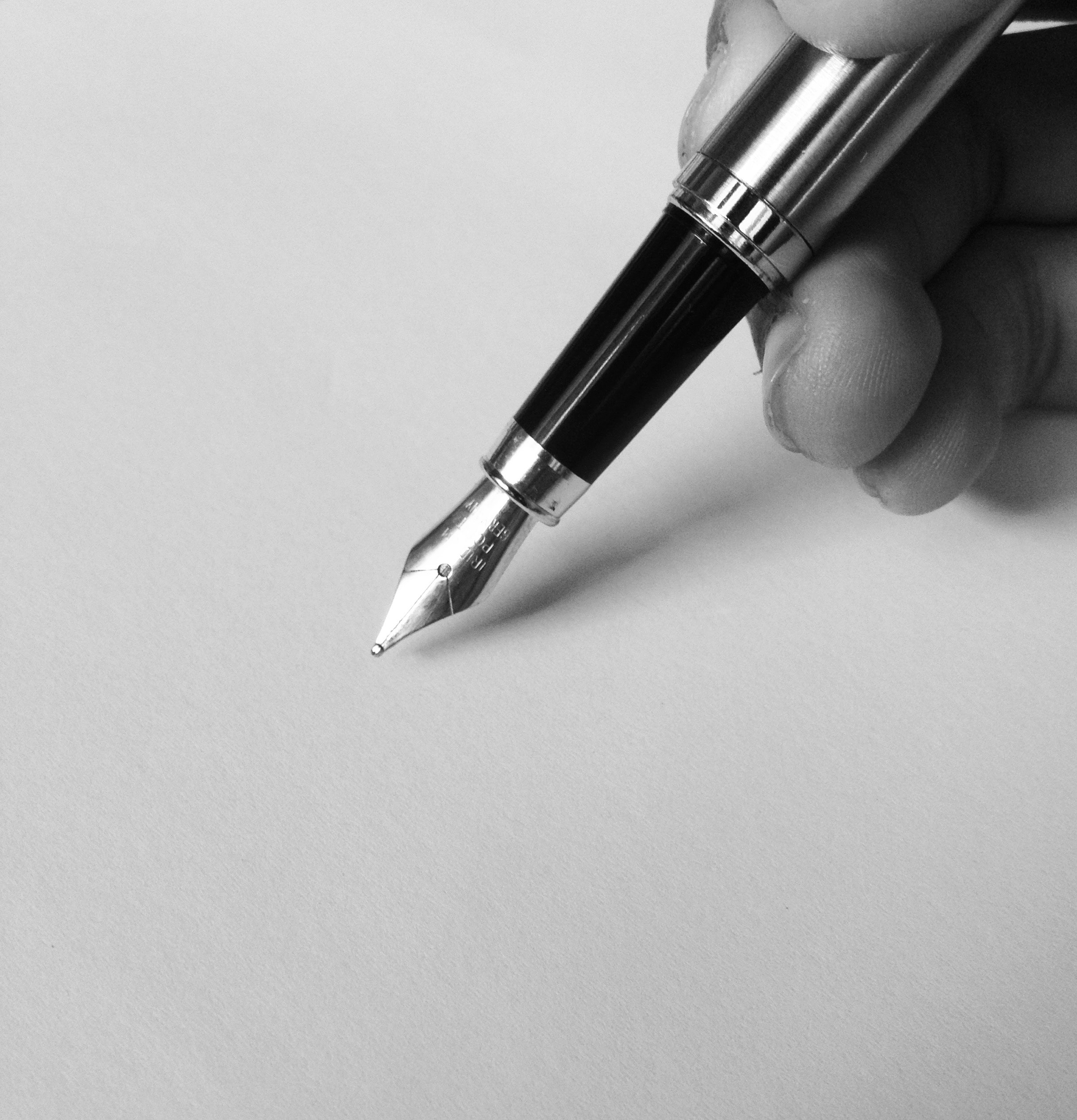
How to write a book
Falling into the temptation to let go of a moment’s inspiration is easy. We all constantly come up with ideas from an anecdote that has occurred to us during the day, a sentimental relationship, a news item in the newspaper… Life offers us infinite ideas for writing a story (and publishing a book). However, writing a book all at once and then thinking about how to put together those fragments that have occurred to us is not the best way to start.
If we don’t know how to drive the train, that is, our story, it will derail sooner or later. So that this does not happen, here are some tips on how to write a book. When you have reached the last page, you will feel that the story really does make sense, that it is richer and deeper.
1. How to write a book without paperhelp: mission impossible
If you want the writing of the contents to flow and not find more obstacles than necessary, you have to plan everything correctly. Otherwise, you’ll get into constant improvisation and there will come a point where you don’t even know how to continue. Not to mention the consequent inconsistencies, gaps, contradictions, insubstantial scenes, etc. which you’ll fall into. If you don’t take writing seriously, anarchy will ensue and your work will rebel against you.
Leaving duties and schedules aside, when we talk about planning, we mean that the main elements of the novel must be clear before writing the first word.
1.1 Which narrator will give voice to your book?
The choice of the narrator is important because it will condition the way you are going to tell the story. It is not the same to offer the readers a limited, external, or multiple vision. This will influence aspects such as the amount of information you will provide, the style, or the rhythm. Be clear about what your role will be and don’t mix more than one type of narrator if you don’t know how to do it. It would be nonsense to jump from one to the other, confusing the reader and giving him/her a reason not to read.
Think about your story and form a mental framework. You’ll see how the answer will appear by itself.
1.2. The characters are the novel
The good and the bad, i.e. black and white, are all in the past. At best, you should save them for some story. Characters are everything: through them, we feel, we move forward, we learn… So don’t settle for a mere archetype or stick to clichés. People like the greys, the shades, because this is what gives the characters verisimilitude and makes us reflect in them. Give them complex psychology to help understand why they act one way or another. The more volume they have, the more play they will give in the different plots.
1.3. Write the complete plot
Before you ask yourself how to write a book, you have to compose its complete argument, that is, the central points. Although you can always introduce new ideas to improve the story, it should be as clear as possible from the beginning. To do this, define:
Who or who are the main characters?
The themes. What do you want to tell? Or, in other words, what do you want to talk about? A novel is not about an ogre who rescues a princess and falls in love. Behind that, there is the importance of accepting yourself as you are, and seeing beauty beyond a physical appearance.
How are you going to do that? Science fiction, contemporary novel, fantasy…
The conflicts, that is, the difficulties that the protagonist will encounter. Conflict is what makes the story interesting, what gets us hooked, and makes us empathize with the different characters. Does the protagonist confront himself? Society? What makes him evolve and forge his character? A simple example: a character is too cowardly, but decides to risk his life instead of running away to save his friends.
The plot turns, those turning points where the story changes course. These relevant events will mark the path you must follow.
1.4. Setting the scene
Your novel deals with specific space-time coordinates around which the other elements are built. Think about where the events are going to take place, what the landscapes, houses, climate, character, and language of the inhabitants are like, whether it is an industrialized city or not… Imagine yourself there and transmit your sensations to the reader, make him/her see what you see.
2. Don’t skip the documentation phase
Answering the question of how to write a book is easier if you don’t skip any stages. Once you have the sketch of what that fictional world will look like, it’s time to investigate. If your book is set in the Spanish Civil War, you will have to take into account what the uniforms were like, the situation of the country, the causes of the conflict, how people lived at that time, etc.
Similarly, if one of your characters has some kind of psychological problem, you should document that disorder and how it affects the individual and his or her environment, how it manifests itself, or possible triggers. And in the case of a science fiction novel, you will have to take into account the laws of physics, the discoveries, and the current studies…
3. What audience do you write for?
As you can imagine, what you are going to write will be different for a child, youth, or adult audience. The language, the situations, the complexity of the conflicts… Everything can change depending on the type of readers. For example, a girl who likes online role-playing games gets trapped in that virtual world and will have to find her way home. You could approach this argument from two points of view.
The first would be that of the regular users of this type of platform. That way, you wouldn’t have to explain certain concepts or the mechanics of the game, and you could use more technical language. The second point of view would correspond to the general public, without taking into account ages or hobbies. In this case, you should try to make the subject of online video games accessible to everyone.
4. What will the beginning of your novel be like?
When you write the first pages of your book, be direct, make it clear what you are going to talk about. To do this, you can start with a trigger event, such as murder; it’s okay to anticipate events if it’s done for the sake of the story. You can also tell the end of the story at the beginning and then go back to the past (a common feature in films), or exploit the charm of a character. If you have a peculiar, rare or special protagonist (in a negative or positive sense), use him or her to seduce the readers.
The goal is to keep them and make them want to keep reading.
What not to do when writing a book
Now that we’ve outlined the key points you must define before writing your story, let’s see what sins you must not commit.
Never start with a big description, let alone one that takes up two or three pages. The trees were green and the water crystal clear? What a novelty! No one’s ever heard of such a thing… Super Entertainment!
Forget the beaten path and be original. No “once upon a time”, “the girl looked out her window longing for freedom”, “it was a rainy day”, etc.
Don’t get the plots tangled up too much. Besides the possibility of the reader getting lost, you can subtract truth from the story and create unnecessary gaps.
No copying of other stories. Find out about the market you are in: what has been done, what is successful. That way you can think of something original or at least give your personal touch.
Never make spoilers. You don’t have to give out all the information at the outset, but rather dose it to generate interest and expectation.
Established writers can afford a longer and more descriptive principle because experience has taught them and they handle language exquisitely. On the other hand, a novel author, no matter how well he writes, must be effective above all else. He is still a stranger, so his efforts have to focus on getting attention from the first minute.
In short: a novel has to catch on. A film can give itself more space to start, as the audience will spend about two hours watching it. But reading a novel takes weeks; people won’t waste that much time if they don’t think it’s worth it.
Final tips
Once you have identified the main elements of content that you need to consider when you start writing a book, don’t forget to include them either:
Find a good place to write. Your room, the library, a park… It doesn’t matter where you are if you are comfortable, relaxed, and focused.
Set some guidelines and a schedule. Routines help to get rid of laziness and prevent days of procrastination.
Set a deadline and share your progress. Letting others know that you have started a project creates a “moral obligation”: you will feel that you cannot fail those people, you will commit to them and to yourself, and you will strive to move forward.
Read a lot and also make room for the cinema.
Sign up for courses and workshops to improve your technique. No one is born knowing and even the most talented filmmaker can make mistakes. Experience and learning make us grow.
Don’t give up or give importance to the blocks. We all have blank moments, it’s normal and you shouldn’t stress about it. Take a deep breath and try to clear your mind, ideas will come.













